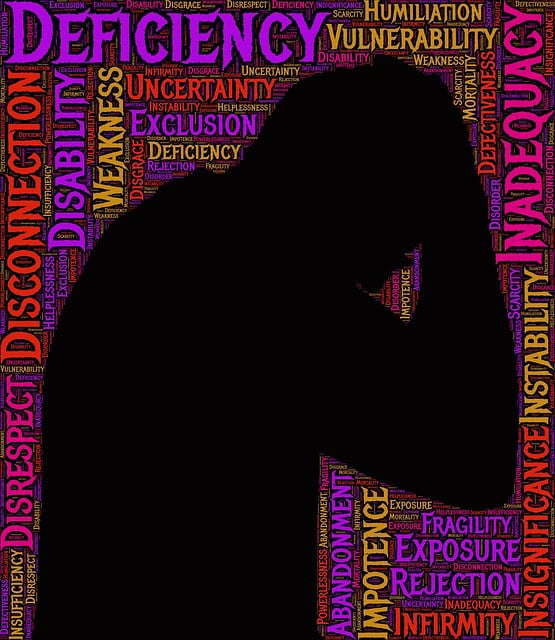Crisis Intervention Teams (CITs) provide specialized support for adolescents facing sexual addiction by combining mental health expertise, law enforcement, and social work. Through tailored training, CIT members learn conflict resolution and risk management strategies while offering trauma-informed care to address underlying issues contributing to addiction. Implementing CIT programs requires strategic planning, incorporating evidence-based practices like therapy, stress management workshops, and social skills training, with continuous evaluation for optimal teen mental wellness outcomes.
In today’s complex social landscape, crisis intervention team (CIT) training programs play a pivotal role in addressing urgent mental health challenges, particularly among adolescent teens grappling with sexual addiction. This article explores the transformative power of CITs, delving into their specialized roles in identifying and supporting teens struggling with sexual addiction. We dissect key components of effective training, providing practical strategies for implementing and evaluating CIT interventions to enhance therapy for adolescent teens sexual addiction.
- Understanding Crisis Intervention Teams and Their Role in Teen Sexual Addiction
- Key Components of Effective Training Programs for CITs
- Implementing and Evaluating CIT Training: Strategies for Supporting Adolescent Teens
Understanding Crisis Intervention Teams and Their Role in Teen Sexual Addiction

Crisis Intervention Teams (CITs) play a pivotal role in addressing and mitigating crises, especially among adolescents grappling with sexual addiction. These specialized teams are designed to provide immediate support and guidance when faced with high-risk situations involving youth. By integrating diverse professionals, including mental health experts, social workers, and law enforcement officers, CITs offer a comprehensive approach to understanding and treating complex issues like adolescent sexual addiction.
Through tailored training programs, these teams gain proficiency in conflict resolution techniques and risk management planning for mental health professionals. This enables them to navigate challenging scenarios effectively while ensuring the safety and well-being of the affected teens. Additionally, trauma support services are a core component, as many young individuals dealing with sexual addiction have experienced underlying trauma that requires specialized care and understanding. Such interventions not only help in managing immediate crises but also foster long-term recovery by addressing the root causes of adolescent sexual addiction.
Key Components of Effective Training Programs for CITs

Effective crisis intervention team (CIT) training programs are multifaceted and comprehensive, designed to equip participants with a wide range of skills essential for handling crises in various settings. A key component is the integration of therapy for adolescent teens sexual addiction, as this is a sensitive yet critical area that requires specialized knowledge and techniques. Beyond this, these programs should encompass stress management workshops tailored to the organization’s unique needs, fostering an environment where team members can learn healthy coping mechanisms for high-pressure situations.
Additionally, conflict resolution techniques are vital, teaching CIT members how to de-escalate tensions and mediate disputes effectively. Similarly, trauma support services are crucial, ensuring that team members understand the impact of trauma on individuals and are equipped to provide empathetic, compassionate care. The inclusion of these elements in training ensures that crisis intervention teams are not just responsive but also proactive in addressing complex issues such as sexual addiction and related traumas among adolescents.
Implementing and Evaluating CIT Training: Strategies for Supporting Adolescent Teens

Implementing and evaluating Crisis Intervention Team (CIT) training programs is a multifaceted process that demands strategic planning and continuous assessment. For adolescent teens grappling with sexual addiction, specialized CIT training can be transformative. These programs must go beyond traditional crisis management to incorporate therapy tailored for their unique needs, addressing not just the immediate crisis but also underlying mental health issues.
Effective CIT training for adolescent teens involves a combination of evidence-based practices such as Mental Wellness Journaling Exercises and Mind Over Matter principles, coupled with Social Skills Training. Regular feedback mechanisms should be built into the program to gauge its effectiveness, enabling instructors to adapt guidance and support accordingly. By fostering a safe space for learning and growth, these training programs can equip teens with coping strategies, enhance their mental wellness, and guide them towards healthier, more fulfilling lives.
Crisis Intervention Team (CIT) training programs play a vital role in equipping professionals with the necessary skills to support adolescent teens suffering from sexual addiction. By implementing effective training that incorporates evidence-based practices and empathy-focused approaches, we can enhance the quality of care provided to this vulnerable population. In light of the growing need for specialized treatment in the digital age, continuous evaluation and refinement of CIT training strategies are essential to ensure that therapy for adolescent teens’ sexual addiction remains accessible and impactful.














